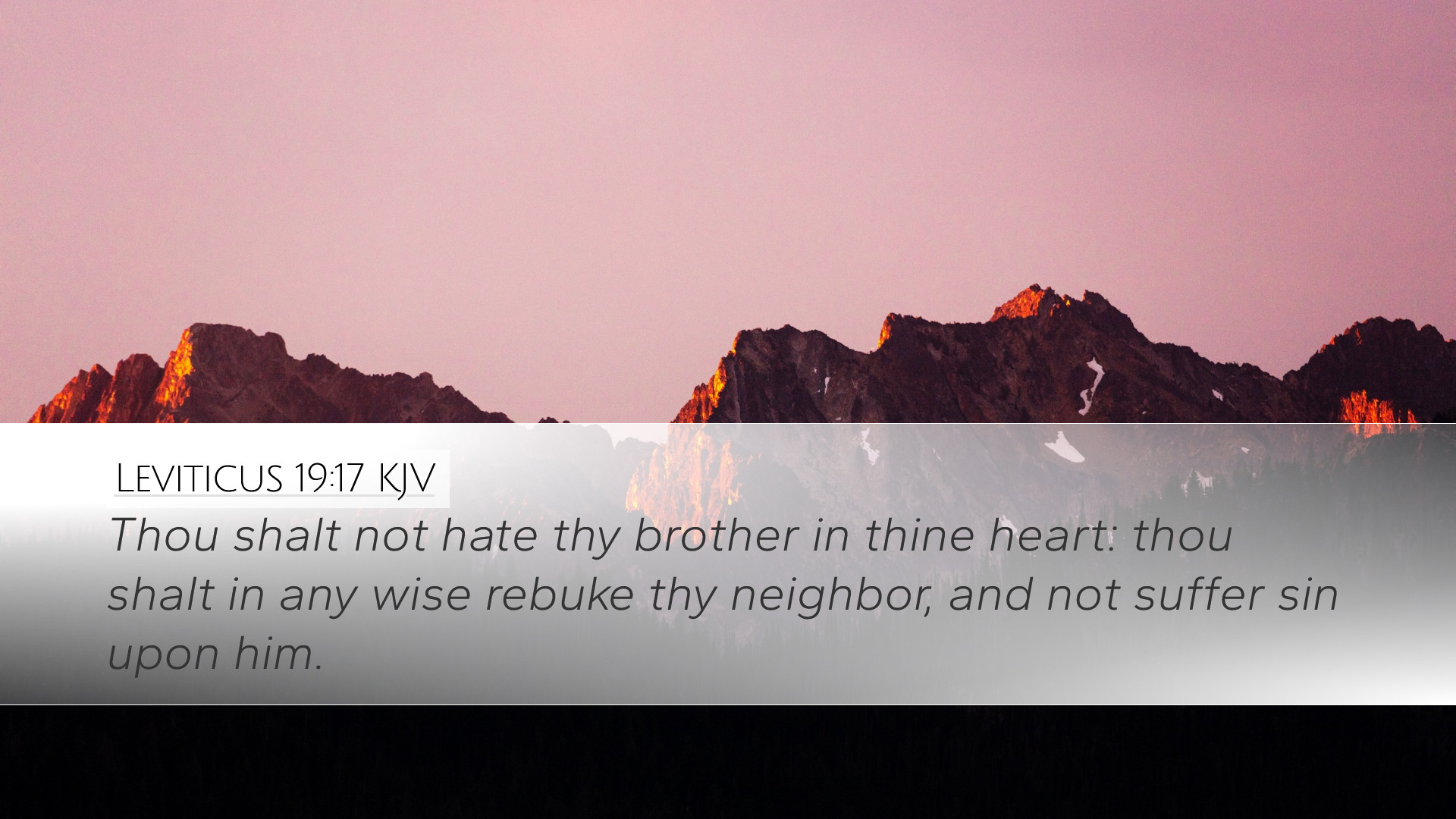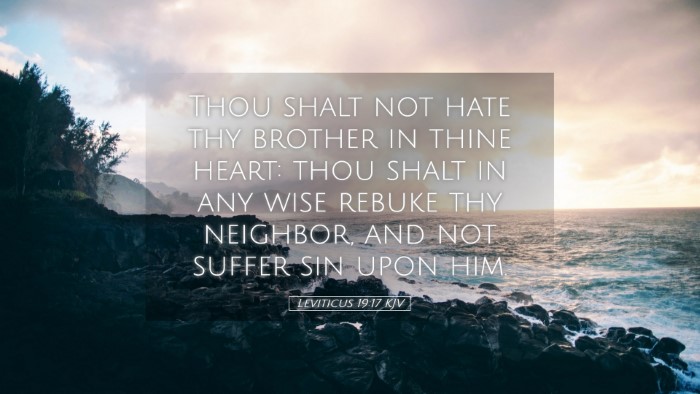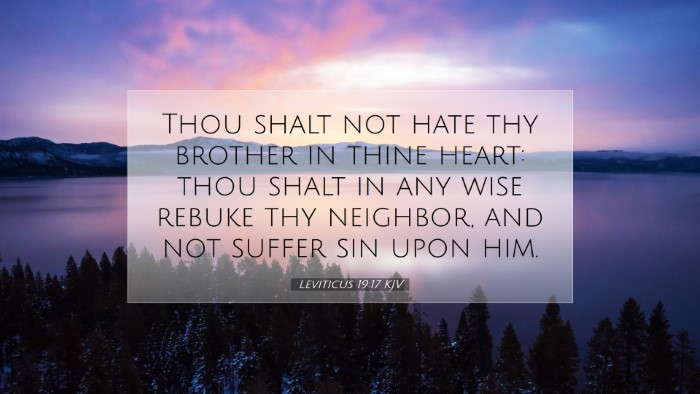Commentary on Leviticus 19:17
Leviticus 19:17 states: "You shall not hate your brother in your heart. You shall surely rebuke your neighbor and not bear sin because of him." This verse addresses the moral responsibilities of individuals within the Israelite community, establishing the importance of love, correction, and community ethics.
Contextual Overview
The chapter of Leviticus 19 is often referred to as the Holiness Code, outlining the ethical and ritual codes that God's people should uphold. This chapter emphasizes that holiness is expressed through social conduct and inter-personal relationships.
Insights from Matthew Henry
According to Matthew Henry, this verse emphasizes the gravity of harboring hatred within the heart. He contends that such feelings can lead to further transgressions, asserting that it is crucial to confront and correct sin rather than allowing resentment to fester. Henry elaborates on the significance of rebuke, suggesting that it must be performed with a spirit of love rather than malice.
The Importance of Rebuke
Henry underscores that rebuking a neighbor is not just an act of authority but rather an act of love. He cites Proverbs 27:5, where it states, "Open rebuke is better than secret love." This aligns with the call to build up the community rather than tear it down through silent resentment.
Insights from Albert Barnes
Albert Barnes interprets this verse as a divine mandate for social responsibility. He argues that the prohibition against hatred is coupled with an obligation to correct wrongs. Barnes points out that the Hebrew term translated as "hate" indicates a deep-seated aversion that is devoid of care for the fellow person.
Community and Correction
Barnes emphasizes that moral integrity within the community requires active engagement in one another's spiritual lives. He reflects on the notion that to not rebuke one's neighbor when they have sinned is to participate in the sin of indifference. Correcting a brother, therefore, is framed as an essential act of love, parallel to the teachings of the New Testament.
Insights from Adam Clarke
Adam Clarke interprets this verse within the broader context of social relationships and the maintenance of community harmony. He notes that the prohibition against hatred is foundational to the social fabric of Israelite society and emphasizes the obligation to point out wrongs in a constructive manner.
The Balance of Love and Truth
Clarke points out that a true brotherly relationship encompasses both love and truth. He suggests that failing to confront sin is a way of allowing hate to grow, while rebuking one’s neighbor is an expression of genuine care. Clarke also references the teaching of Jesus in the New Testament regarding love for our neighbors, reinforcing the idea that such love is active and sometimes involves difficult conversations.
Theological Implications
The exhortation in Leviticus 19:17 brings forth significant theological implications for contemporary readers. The essence of this text aligns with the themes of love and community found throughout Scripture. It encourages believers to not only avoid hatred but to actively seek reconciliation through loving correction.
Application for Pastors and Leaders
This passage holds profound relevance for church leaders and pastors who are tasked with shepherding their congregations. The call to rebuke in love emphasizes the need for accountability within the body of Christ. Pastors can reflect on the importance of fostering environments where open dialogue and correction are embraced as part of spiritual growth.
Application for Scholars and Theologians
Biblical scholars may explore the intertextual connections between Leviticus and later New Testament teachings. The nature of rebuke and correction in light of Christ's teachings provides a rich area for further study. The sociological implications of community ethics in ancient Israel compared to modern contexts also invite deeper inquiry.
Conclusion
Leviticus 19:17 remains a powerful reminder of the importance of healthy relationships within any community of faith. It calls individuals to reject hatred and actively pursue restoration and growth through love and respectful correction. These principles resonate through both the Old and New Testament, inviting all people to reflect God’s holiness in their interactions.


